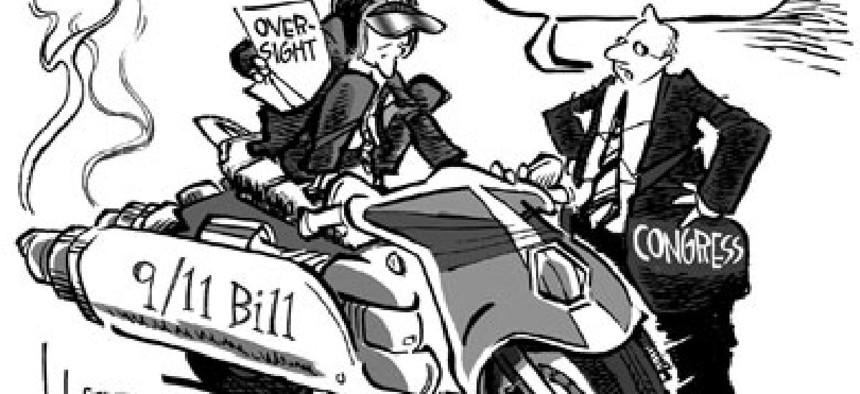Editorial: First, heal thyself

Everybody knows that the budget process is broken, but almost no one on Capitol Hill talks about it.
Lawmakers recently passed a bill that seeks to codify numerous recommendations of the 9/11 Commission into law, yet they have taken few additional steps to change the way Congress operates.
Last August in this space, we noted how important it is for Congress to lead by example, yet nobody wants to discuss the Hill’s role.
Perhaps Congress’ most important role is in the budget process. Unfortunately, it is an exceptional year when lawmakers pass agency budgets near the end of the fiscal year. More often, agencies are stuck with a continuing resolution or omnibus spending bills, which are then layered with pet programs that often distract agency officials from their real missions.
Under those circumstances, agencies are unable to adequately plan because they don’t know how much money they will have to spend until late in the fiscal year. Even worse, agencies often must use that money by the end of the fiscal year, which gives them only a few months to spend the funds, sometimes forcing them to go on a spending spree, or else potentially lose those funds.
Finally, the budgeting process fails to encourage agencies to work together. Because lawmakers on various committees are busy protecting their own powers of the purse, the budget process remains largely byzantine.
Everybody knows that the budget process is broken, but almost no one on Capitol Hills talks about it. Last year, we described Congress as an “ingrained organizational structure that seems to emphasize divisions.” Unfortunately, that description is still accurate.
The new leaders of Congress have taken steps to increase oversight of intelligence and homeland security. But the 9/11 Commission Report recommended that Congress create a single point of oversight and review for homeland security, and it has not.
Congress can have an enormous effect on how the government operates. If lawmakers were to take steps to resolve incompatibilities within their organization, they would send a powerful message to agencies that divisions cannot be tolerated.

NEXT STORY: Air Force to implement new FOIA system


